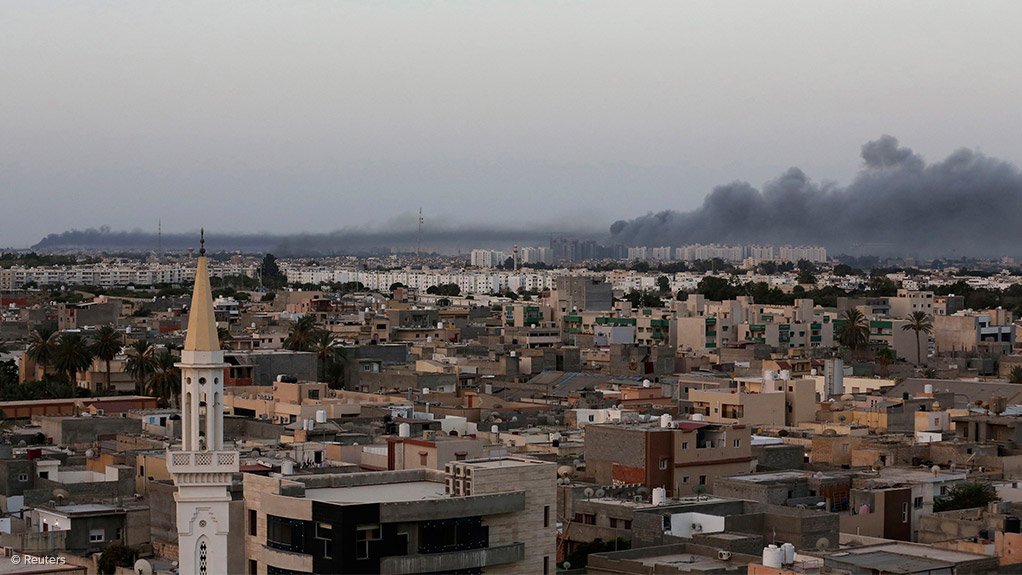Universities are almost always among the casualties when a country goes to war. Ultimately, they become hotbeds of repression. As conflict deepens, academic freedom is threatened or curtailed. Teachers, researchers and students flee, prompting a brain drain their countries can ill afford. Buildings are bombed. Sometimes entire campuses are destroyed.
University teaching in Libya has practically ground to a halt in the past 18 months. Some institutions in the North African nation have closed their campuses entirely. Students from the country’s International Medical University have moved to Egypt’s Suez Canal University to continue their degrees while waiting for peace to return to Libya.
But as many other African countries – among them Liberia, Sierra Leone and South Sudan – can attest, the end of a war brings new battles.
After a long conflict, universities simply cannot produce the human capital that is needed to begin repairing a country. Post-conflict planning rarely talks about rebuilding higher education systems and institutions. It is simply not a priority.
It should be. Quality higher education is crucial for recovery, peace building, economic development and stronger governance in post-conflict societies.
A pattern of neglect
In a report about post-conflict education, the World Bank warns against prioritising basic education at the expense of higher education. It says this skewed focus creates deeply rooted imbalances and:
… directly affects economic and social development in the longer term.
Barely any humanitarian aid is spent on repairing even basic education systems in war torn societies. The total spending on rebuilding basic, secondary and higher education systems after a conflict accounts for just 2% of overall humanitarian assistance.
When money is spent on higher education in post-war nations, it usually actually benefits other parts of the world. About 70% of aid to post-secondary education is intended for scholarships to study in donor countries. This means that hardly any money is spent to directly strengthen higher education systems in recipient countries.
This is not to say higher education in post-conflict settings is entirely neglected. Universities in the developed world, international and nongovernmental organisations do get involved – but most of their initiatives are isolated, happen only on a small scale and take a very short-term approach.
There is no coordination or collaboration, a situation that often stems from “turf wars” and heated competition over funding.
Collaboration and solidarity
Nations emerging from violent conflict need immediate, substantial and long-term support to repair and reform their higher education systems and institutions. This will allow them to produce the graduates needed for rebuilding: critical thinkers, administrators, civil servants, technicians, scientists, doctors and teachers.
Universities in the developed world seem to be recognising that they can help. The 2015 York Accord sets out important recommendations for protecting and rebuilding higher education systems and institutions after armed conflict.
Higher education institutions from Europe, the US and Africa’s academic powerhouses like South Africa can help universities that are rebuilding after conflict in several ways. These include:
-
establishing support networks;
-
collaborating on research;
-
raising funds;
-
organising staff and student exchanges; and
-
developing mechanisms for accreditation and quality assurance.
Universities cannot do this alone, and donor funding will be hugely important.
Inclusion, not imposition
Organisations and academic institutions that want to work with universities in post-conflict countries must be culturally sensitive. They cannot simply impose their own ideas, values and ideologies onto these spaces.
Instead, they need to fully understand a country’s systems, problems, needs and challenges. They must work closely with local actors to design, develop and deliver country-specific projects informed by local needs and challenges.
Wherever possible, they should involve local academics and experts in their programmes. This has the added benefit of training for locals, who can then share this knowledge with other academics, students and experts.
Curricula also need to be changed. Alongside mainstream academic disciplines such as economics, engineering and science, universities must also promote conflict management and peace studies. These disciplines can develop individuals and institutions that are capable of changing divisive discourses and contributing to conflict prevention and stabilisation.
None of this implies that the rest of the education sector must be neglected in favour of rebuilding universities. Primary and secondary education are crucial to any society’s well-being. On their own, though, they are not enough to sustain a country’s development and progress in the wake of war. That is the job of universities and their graduates.
This article is based on Heleta, S. 2015, Higher Education in Post-Conflict Societies: Settings, Challenges and Priorities. Handbook Internationalisation of European Higher Education. Vol. 1. 2015. Stuttgart: Raabe Verlag.
Written by Savo Heleta, Manager, Internationalisation at Home and Research, Nelson Mandela Metropolitan University
This article was originally published on The Conversation. Read the original article.
EMAIL THIS ARTICLE SAVE THIS ARTICLE
To subscribe email subscriptions@creamermedia.co.za or click here
To advertise email advertising@creamermedia.co.za or click here











